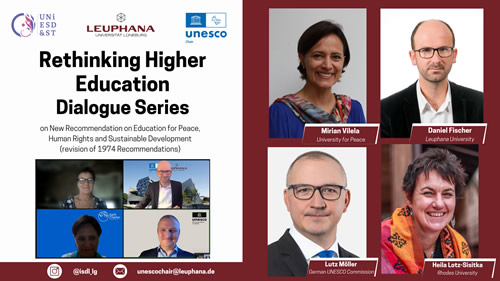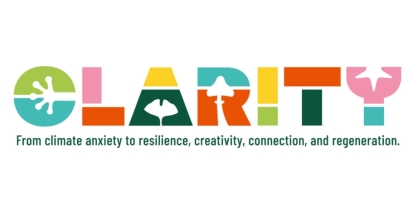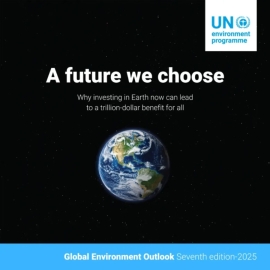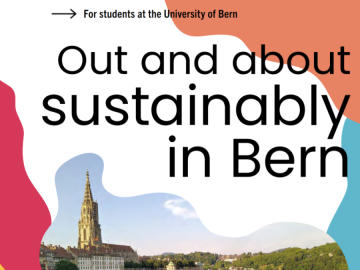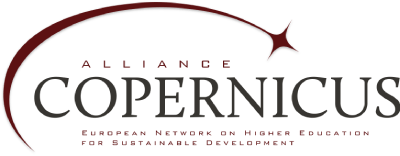On 7 February 2024, a distinguished panel of experts met as part of the new "Rethinking Higher Education Dialogue Series" to discuss the recently adopted "Recommendation on Education for Peace and Sustainable Development". The event, organized by the UNESCO Chair in Higher Education for Sustainable Development at Leuphana University Lüneburg, aimed to delve into the implications of this revision, which sets forth a comprehensive framework for aligning education with global aspirations for peace and sustainability.
The Recommendation on Education for Peace and Human Rights, International Understanding, Cooperation, Fundamental Freedoms, Global Citizenship and Sustainable Development was adopted by UNESCO in 2023. The event, organized by the UNESCO Chair in Higher Education for Sustainable Development at Leuphana University Lüneburg, aimed to delve into the implications of this revision, which supersedes the 1974 Recommendation and sets forth a comprehensive framework for aligning education with global aspirations for peace and sustainability.
The online dialogue, conducted via Zoom, featured insightful contributions from renowned speakers Mirian Villa (University of Peace, Costa Rica), Heila Lotz-Sisitka (Rhodes University, South Africa), Lutz Möller (German Commission for UNESCO), and the dialogue's moderator, Daniel Fischer (Leuphana University).
Lutz Möller commenced the dialogue by providing a historical context behind the revision of the 1974 Recommendation, emphasizing its importance in addressing contemporary challenges such as climate change and arising conflicts. Heila Lotz-Sisitka further highlighted the shifts in the document, mainly its enhanced focus on the role of education in shaping the future.
Mirian Vilela offered valuable perspectives on the need for collaborative action and the explicit recognition of diverse stakeholders in promoting sustainable development and peace education. She emphasized how crucial the updated Recommendation is to energize both state and non-state actors to support these shared objectives, adding that "the beauty of this new instrument is that it can bring different views and movements together."
Throughout the dialogue, participants reflected on the legal status of the document and its potential to drive meaningful action at both national and international levels. Lutz Möller emphasized the document's unique status as the sole intergovernmental instrument outlining the global agenda for education, while Heila Lotz-Sisitka further underscored its role as a catalyst for dialogue and collaboration.
Rethinking education's role in promoting peace, human rights, and sustainable development is crucial, as the conversation series offered a forum for critical thought and discussion. In closing, Daniel Fischer emphasized the transformative power of law in shaping educational paradigms and invited participants to apply the new Recommendation to spur constructive change in global educational systems.
Critical conversation will continue in the following dialogues of the series!
► Visit this website and subscribe to the UNESCO UNiESD&Social Transformation Newsletter for more information and updates.

